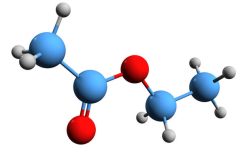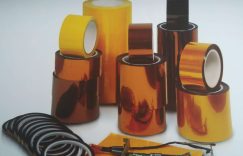Polyimide (PI) is a high-performance polymer known for its exceptional properties and wide range of applications in various industries. Here are some of the key advantages of polyimide materials:

-
Excellent Thermal Stability: Polyimides exhibit remarkable thermal stability, withstanding high temperatures up to 500°C (932°F) and even higher in some cases. This property makes them ideal for applications where heat resistance is crucial, such as in aerospace, electronics, and automotive industries.

-
Outstanding Electrical Properties: Polyimides possess excellent electrical insulation properties, including high dielectric strength, low dielectric loss, and high resistivity. These attributes make them valuable for electrical insulation, circuit boards, and other electronic components.

-
Chemical Resistance: Polyimides exhibit excellent resistance to a wide range of chemicals, including solvents, acids, bases, and fuels. This chemical inertness makes them suitable for harsh chemical environments, such as in the chemical processing, pharmaceutical, and oil and gas industries.
-
Mechanical Strength: Polyimides are known for their high mechanical strength and toughness. They possess good tensile strength, flexural strength, and impact resistance. These properties make them suitable for structural applications, such as in composite materials and aircraft components.
-
Dimensional Stability: Polyimides exhibit excellent dimensional stability, maintaining their shape and size under various conditions. This stability is particularly advantageous in applications where precise dimensions are critical, such as in precision engineering and optical components.
-
Low Outgassing and Flammability: Polyimides have low outgassing rates, meaning they release minimal volatile compounds into their surroundings. Additionally, they exhibit low flammability, making them suitable for applications where fire resistance is essential, such as in aerospace and transportation industries.
-
Adaptability and Versatility: Polyimides are versatile materials that can be processed into various forms, including films, sheets, tapes, and molded parts. This adaptability allows for diverse applications, ranging from flexible printed circuit boards to high-temperature seals and gaskets.
Due to their exceptional properties, polyimides find extensive applications in various industries, including:
-
Aerospace: Polyimides are used in aircraft components, such as radomes, heat shields, and electrical insulation, due to their high-temperature resistance, electrical properties, and mechanical strength.
-
Electronics: Polyimides are employed in circuit boards, flexible printed circuits, and electronic packaging due to their exceptional electrical properties and chemical resistance.
-
Industrial: Polyimides are utilized in seals, gaskets, and insulation materials in various industrial applications, including chemical processing, automotive, and oil and gas industries, owing to their chemical resistance and thermal stability.
-
Medical: Polyimides are used in medical devices, such as catheters, implants, and surgical instruments, due to their biocompatibility and ability to withstand sterilization processes.
-
Optical: Polyimides find applications in optical components, such as lenses, prisms, and mirrors, due to their high dimensional stability and low outgassing rates.
Polyimides continue to gain popularity and are being explored for new and emerging applications across diverse industries, owing to their unique blend of high-performance properties and adaptability.



